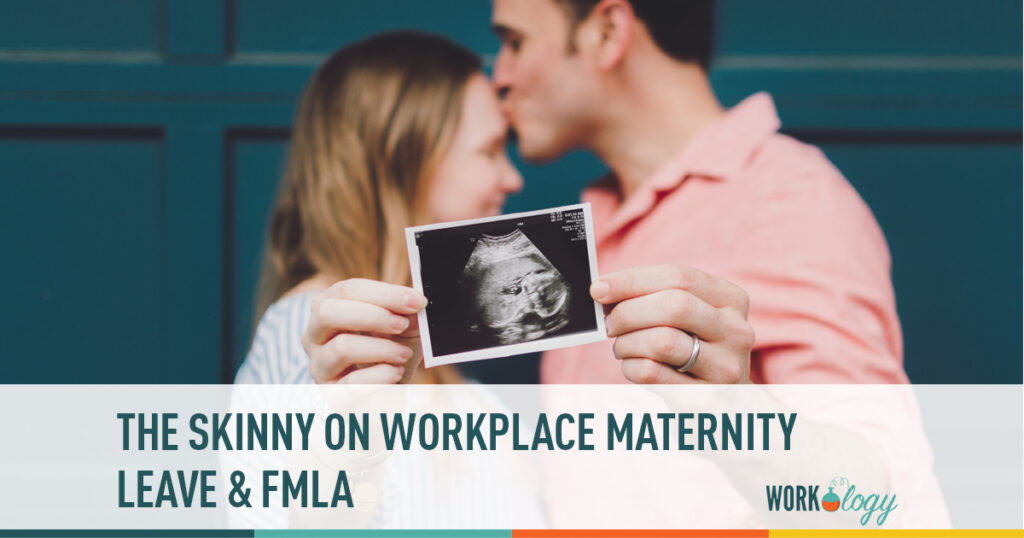When it comes to maternity leave, most people expect that it is paid benefit offered by all employers when, in all actuality, it is not. Sometimes it isn’t offered because an employee hasn’t been with the company long enough to legally qualify or the employer may not legally qualify due to their size. Sometimes it isn’t offered because the company just plain isn’t required to offer it, so they don’t.
Maternity leave will generally fall into one of two categories; your typical maternity disability or medical leave and family medical leave (FMLA). The typical medical leave time will be six to eight weeks long, depending on how the baby was born, with the intention of giving the mother time to recuperate accordingly. Then, if additional time is needed after that initial six to eight weeks, that time may come out of family medical leave. Family medical leave may also be used by fathers and adoptive parents and can be taken before and/or after the arrival of a baby.
The Family and Medical Leave Act (FMLA)
Passed in 1993 and applicable to all companies with 50 or more employees in a 75 mile radius, The Family and Medical Leave Act grants employees, who have been employed with a company for at least a year and who work at least 25 hours a week, up to 12 weeks of unpaid leave (though some states will offer more), per year, for dealing with the birth of a baby, the time can be taken before or after the birth of the baby.
In addition to the leave, this act guarantees job security. Upon returning from leave, the employee must be restored to the same status they were prior.
The Pregnancy Discrimination Act
Passed in 1978 and applicable to all companies with 15 or more employees, the intention of The Pregnancy Discrimination Act was to give pregnant women equal treatment to those with other medical conditions and thus avoid discriminating treatment from employers. Pregnant women are to be given the same benefits and equal treatment when it comes to health, disability, sickness-leave benefits and so on.
Under this act, an employer is not allowed to fire or punish you because you are pregnant. In the same regard they are not allowed to force you to take maternity leave either. Depending on the type of work the pregnant employee does, the act may also require that the employer give them alternate assignments or modify their work duties. If they do a job that simply cannot be done by a pregnant person, the employer may be required to offer a form of disability leave.
As long as a pregnant employee is able to perform their job duties, they are allowed to work and cannot be forced from their role. The act also guarantees that the employee job security while they are away on leave. Also, they may not be penalized while being away, thus, the act guarantees that time away will still count towards seniority and the employee still be eligible for benefits.









